The first thing that you should know about Watchmen’s Comedian—if you don’t already—is that he’s not such a funny guy. In fact, he’s pretty much a bummer. The Comedian is steeped in cynical views and engages in deliberate acts of amorality. His philosophy? Humanity is inherently depraved, so he might as well sit back and chew on a cigar while he watches the world burn (or…while he burns it down himself). Nonetheless, the Comedian, at rare moments, displays transcendent reflection on his own brutish nature and genuine anguish about the state of humanity. The Comedian encapsulates a commentary on the moral ambiguity of American imperialism.
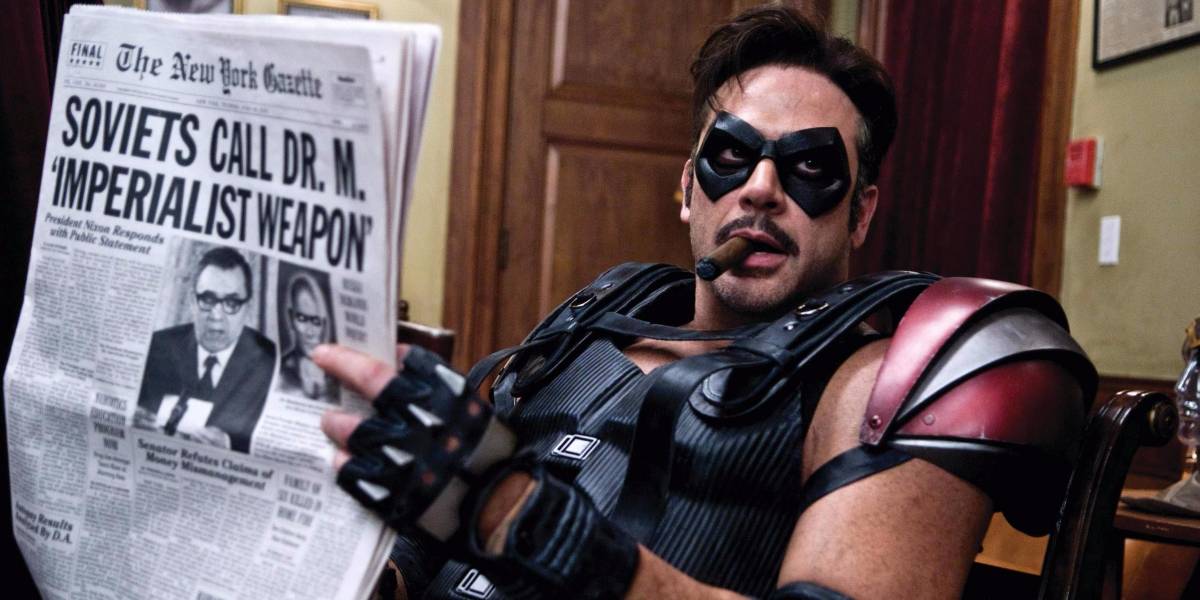
Background and Origin
Edward (Eddie) Morgan Blake, also known as the Comedian, is a vigilante-turned-government operative and mercenary within the Watchmen universe. He is one of the few characters in Watchmen that was a member of both costumed vigilante groups, the Minutemen in the 1940s and the Crimebusters in the ’60s and ’70s. His mysterious death in 1985 serves as the impetus for the story of Watchmen, both in the 1986-87 DC Comics limited series by Alan Moore and Dave Gibbons and in Zack Snyder’s 2009 film. In the film, the Comedian is portrayed by actor Jeffrey Dean Morgan.
Because the “clown” look had already been used for DC Comics supervillain the Joker, Gibbons appropriated a Groucho Marx-style appearance when designing the Comedian. [1] He wore a brightly colored, garish costume while serving vigilante justice in his earlier days with the Minutemen. Later, he converted his costume into a more protective armor replete with thick leather and shoulder pads. His red and blue shoulder pads are emblazoned with white stars, endowing him with a modified Captain America look. He also wears a protective concealing mask.
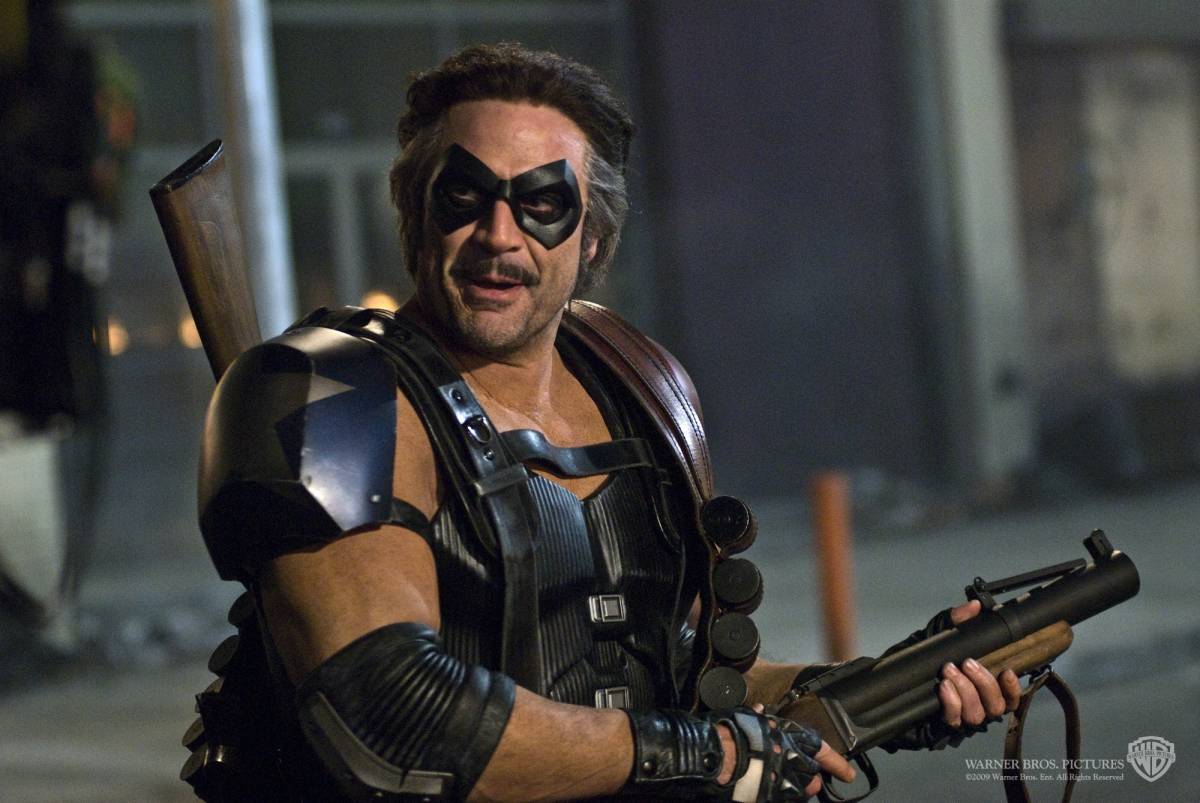
Throughout the comic and Snyder’s film, the Comedian appears with his “smiley-face” button. At the beginning of the series when he is killed, a single smeared blood drop stains the button in a pattern reminiscent of the Doomsday Clock face. After the Comedian’s death, the blood-stained smiley-face button reappears multiple times throughout the story. The button becomes an emblematic symbol for the ethos of the Comedian that underscores the story’s commentary on moral ambiguity in the declining American empire.
The Comedian: Secret Government Operative
Throughout his life and up until his death at age 61 (age 67 in the film), the Comedian is an incredible hand-to-hand fighter and marksman with stunning physical prowess. In the 2009 film, the Comedian and most other major characters are depicted as having superhuman strength. In the original comic series, Dr. Manhattan is the only character endowed with supernormal abilities that are the result of a nuclear accident.
Nonetheless, the Comedian is a formidable opponent with or without superhuman strength. He is proficient with virtually all military and non-military grade weaponry, and he received professional training in special operations, urban and guerilla warfare, espionage, intelligence gathering, and military tactics. [2] He is also a cunning investigator who possesses an uncanny ability for deductive reasoning.
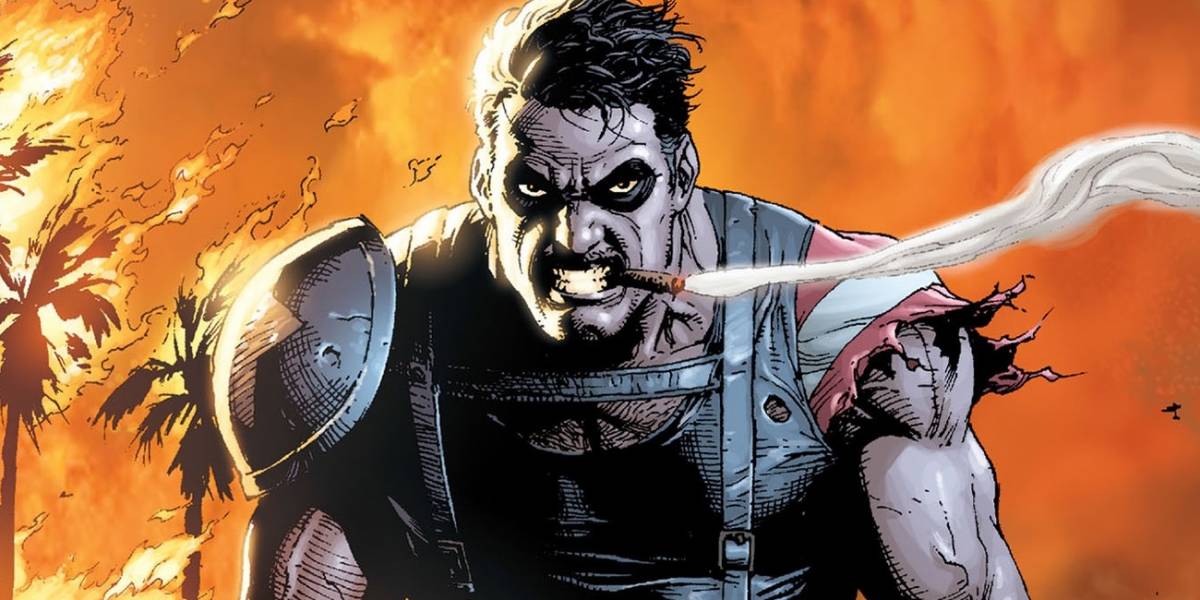
As a secret military operative after the Minutemen vigilante group disbands in the 1950s, the Comedian undoubtedly becomes one of the most influential characters of the series. He assists the Federal Bureau of Investigation (FBI) in hunting down his former vigilante colleague, Hooded Justice, and generally strong-arms other vigilantes into obeying directives from the FBI. He also serves as an advisor to soldiers in the Vietnam War, where he ends up leading soldiers in slaughtering the Vietnamese. [3]
Both the comic series and the film insinuate that the Comedian was responsible for or had foreknowledge of President John F. Kennedy’s assassination. Other strings of secret military operations that the Comedian engaged in include resolving the Iran hostage situation, spying on Marxists in South America, and dispersing crowds of riotous protestors on American soil.
Problematizing Morality and Imperialism
The secret operations that the Comedian engages in at the behest of United States governmental agencies belie the American empire’s façade of moral righteousness. His character allegorizes the ethos of imperialism, patriarchy, and normative covert military operations. Almost more damaging to his integrity than the violence he commits for the American government, however, is the Comedian’s nonchalant abuse of women.
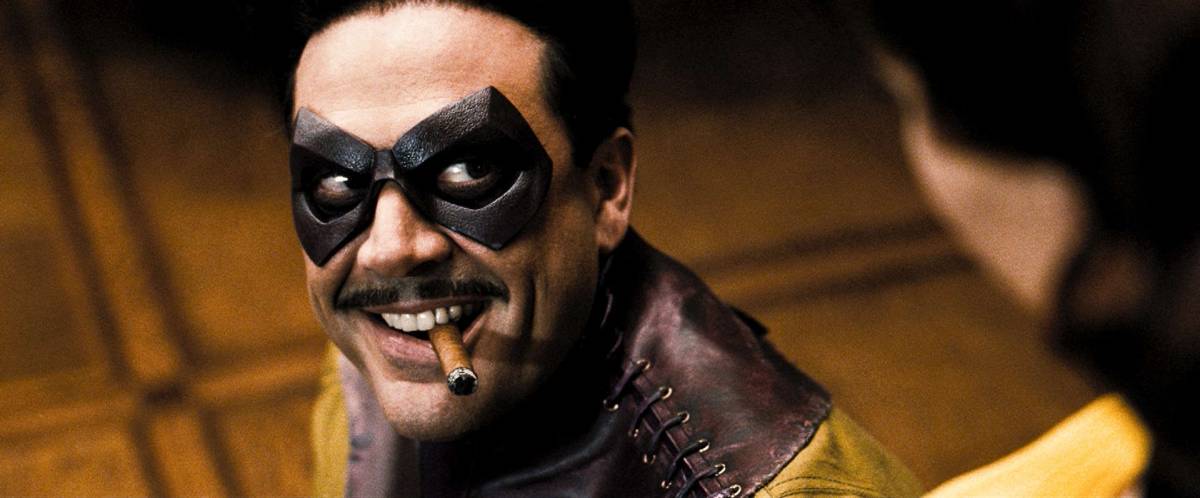
In the 1940s, the Comedian was working as a vigilante with the Minutemen. On October 2, 1940, after a photoshoot, he attempts to violently rape fellow Minuteman Sally Jupiter, alias Silk Spectre. Hooded Justice intervenes before the sexual assault progresses to actual rape and viciously beats the Comedian in retribution. Sally’s agent would ultimately discourage her from pressing charges against him to protect the group’s public image, and the event would haunt her for the rest of her life.
Later, the Comedian consensually fathers Sally’s daughter Laurie, the second Silk Spectre. Laurie does not learn her father’s identity until after his death. The Comedian is shown throughout the series to have feelings of tender regard for Sally and especially for Laurie. It is important to keep in mind, however, that he is never publicly outed for his attempted rape of Sally Jupiter. The Comedian, like most men of his era, contributes to the normalization of committing sexual assault against women with impunity.
The Comedian’s callousness for women is almost more intensely portrayed in Vietnam. The Comedian returns to Vietnam with Dr. Manhattan in 1971, and the two play a major role in bringing the Vietnamese to surrender. After the surrender, the Comedian is confronted by a Vietnamese woman that he has impregnated. She plies him for assistance in raising their child, and he flatly states that he will leave Vietnam without her and never speak to her again. The woman flies into a desperate rage and slashes the Comedian’s cheek with a broken bottle. The Comedian shoots her dead.
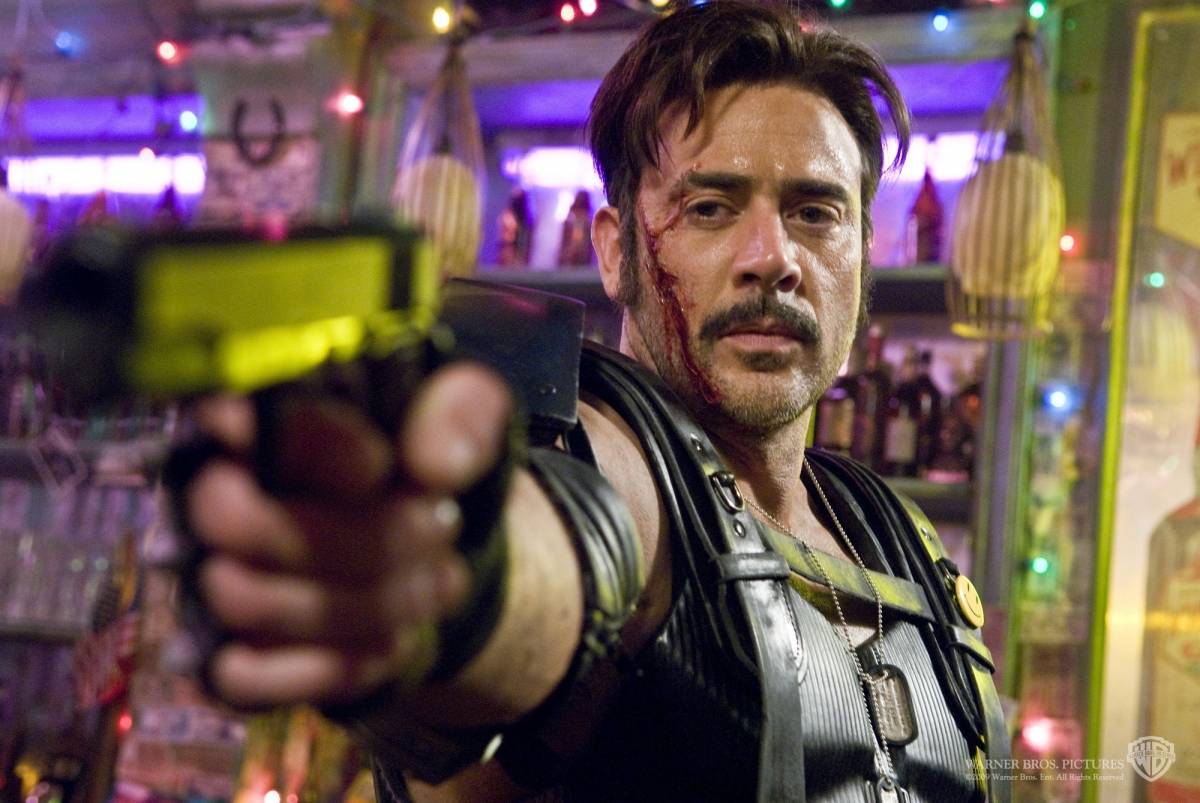
Nowhere is the Comedian’s tendency toward needless cruelty better demonstrated than in the brutal murder of the Vietnamese woman carrying his child. The scene powerfully allegorizes colonialism, military occupation, and rape as an act of war. We are not given knowledge about the nature of the Comedian’s previous interactions with this woman, but his attempted rape of his colleague has already primed us to his attitude of triviality regarding women’s personhood and autonomy.
Although the Comedian is court-martialed for the murder of the Vietnamese civilian, charges are later dropped because of a lack of evidence. Once again, societal structure upholds the Comedian’s ability to commit atrocities against women with impunity. These examples of the Comedian’s freedom to assault and murder women, compounded with his association to imperialistic genocide and the covert stifling of democratic functions by force of violence, signify an allegory on the complicated morality of the traditional American ethos. More indirectly, the Comedian represents the complicity of the American government in conducting heinous acts against civilians.
The Comedian’s Stifled Humanity and Demise
The Comedian’s sense of humanity is masked by his cynicism and brutality. However, one could argue that for all his sarcastic contempt for humankind, the Comedian strives to conceal his overwhelming concern for the social and moral decline of the American empire. Nowhere is this stifled inclination toward compassion more pronounced than in the incident that led to the Comedian’s death.
While flying over an uncharted island in the course of a secret operation in 1985, the Comedian notices suspicious activity on the ground. He infiltrated the island to investigate and was severely traumatized by what he learned was occurring there. As it turns out, the Comedian had discovered the secret facility operated by fellow former vigilante Ozymandias. He also learned of Ozymandias’s diabolical plan to manipulate society into enacting world peace. The plan entails staging an extraterrestrial attack on humankind that would force humanity to relinquish their international conflicts and unite against a common enemy. The stunt that would instigate this deception would, however, cause a great number of civilian fatalities.
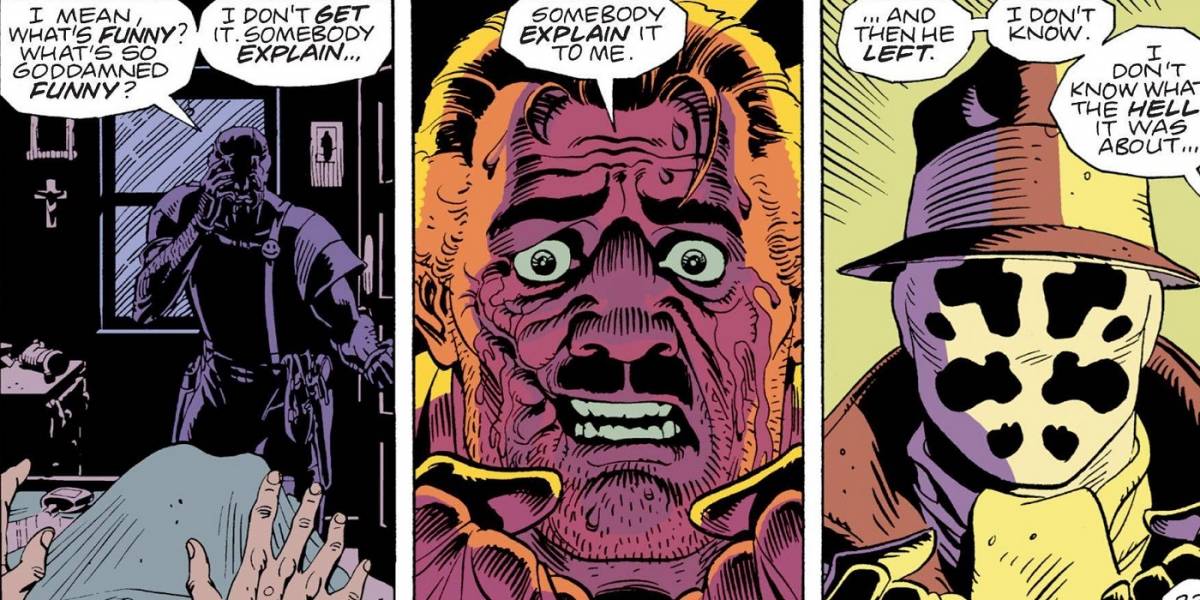
For all the blustery heartlessness that the Comedian exhibits throughout his life, the knowledge of a plan to stage an attack on American civilians severely disturbs him. He ends up getting drunk and breaking into the apartment of his former nemesis, Moloch the Mystic, and inexplicably bemoaning the pointlessness of human affairs.
Ozymandias, who has bugged Moloch’s apartment, infers that the Comedian has knowledge of the impending attack. To silence him, he breaks into the Comedian’s apartment late one night in 1985. Ozymandias beats him mercilessly and then murders him by throwing him through the plate glass window of the high–rise apartment.
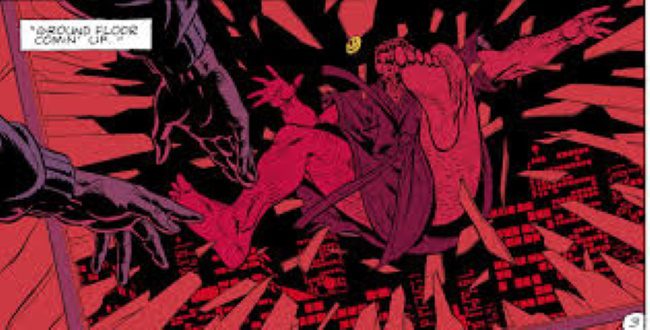
The Watchmen comic series and film both begin with the investigation of the Comedian’s death. He never appears as a living character in the diegesis of Watchmen, but we learn about him through other characters’ flashbacks. His prominence in the other characters’ memories and their internal preoccupation with his disquieting moral code serve to underscore his essential function in the overarching allegory of American imperialism in decline.
Taking cues from the official Watchmen HBO series trailer, we can assume that the new series will adopt the original narrative track which involves the Comedian’s death early on in the series. One of the few glimpses we have relevant to the Comedian in the trailer is a brief shot of his funeral. Notably, in the film and in the original comic series, the Comedian is buried with military funeral honors and with a United States flag draped over his coffin. In the new series, masked police officers give the rifle volley.
We do not know how prominently flashbacks to memories of the Comedian will figure into the new series, but the frequent allusions to masked police officers in the trailer clue us in to the importance of themes relevant to the Comedian in the new series. Whether or not the Comedian is directly featured as frequently as he is in the DC Comics and in Zack Snyder’s film, the HBO series is sure to explore themes of government corruption, conspiracy, secret operations, moral ambiguity, and imperialism in decline.


Why do you think this is the comedians funeral? This takes place years after the original. Laurie walks up as an older lady after the funeral.